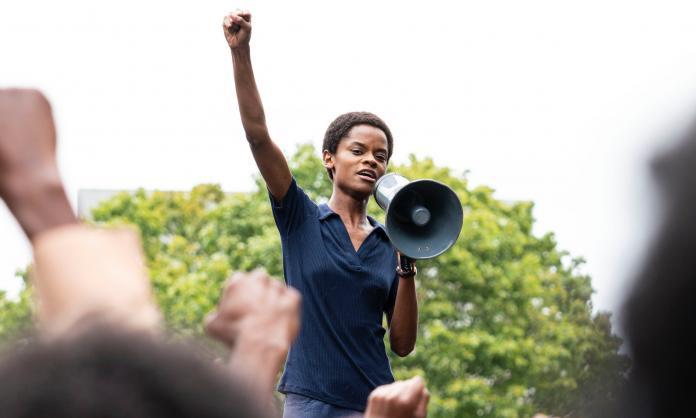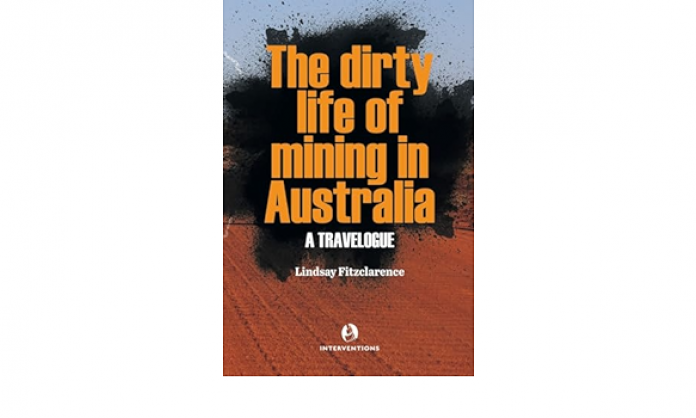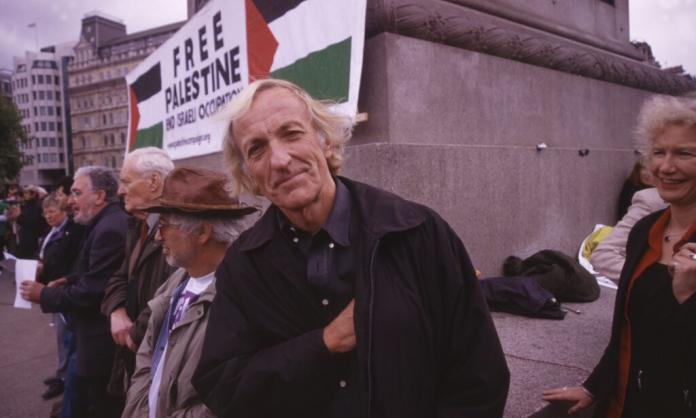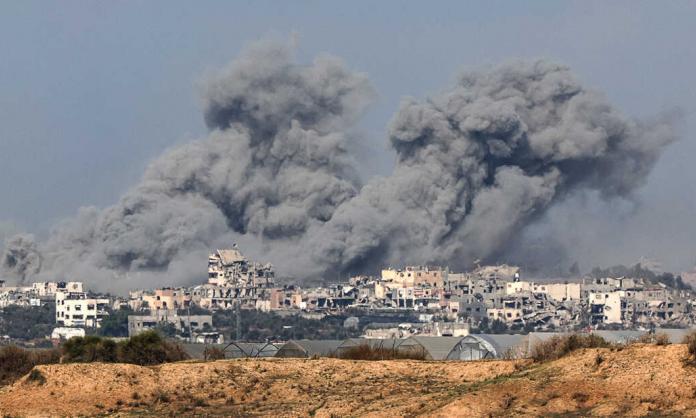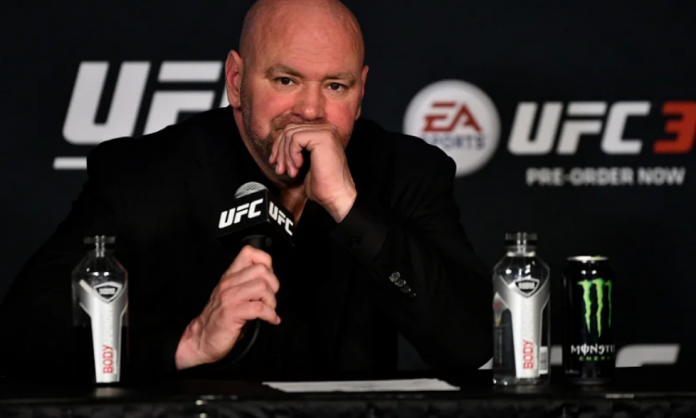If you are the big tree,
we are the small axe,
sharpened to cut you down,
ready to cut you down.
– Bob Marley
Small Axe, a series of five films from Oscar-winning director Steve McQueen (whose other films include 12 Years a Slave and Hunger), is a powerful representation of the lives of Black people in Britain from the 1960s to the 1980s. It is a story both of everyday racism and police intimidation, and the institutional racism of the courts, social services and education system on one side, and on the other, the beauty, joy and solidarity of community and resistance.
2021 is the 40th anniversary of the 1981 Brixton riots—an uprising provoked by police harassment and alienation amid a deep recession—and these films show how the current period of race relations in the UK is firmly rooted in that history. From the continuity in the way Black communities are policed to the construction of Grenfell Tower in the background (albeit with some dramatic licence with the dates), the London of today is very much present in this collection.
My parents, both from Jamaica, came of age in the Britain of the ’70s and ’80s, and in many ways, this series of films depicts their lives. Both were activists around the British Black Panther Party who were schooled early in the notion that the police were always the enemy, and both fought tooth and nail to get a decent education for their kids when the system was failing them.
The films put the racist culture of Britain at the time front and centre. This is portrayed in all its multifaceted reality—from the micro scale of offhand remarks about “not being able to see you lot in the dark” to the macro of violence from the state. The racism of police, teachers, judges and schoolchildren is shown in all its horror, but the moments of beauty and joy are not skipped over either. The camera often lingers on the faces of people simply enjoying themselves in their community—displaying a sense of camaraderie and social solidarity that has been somewhat eclipsed in the decades since by the onslaught of neoliberalism.
This is on show especially in the second of the five films, Lovers Rock, which depicts one night at a blues party. It begins with setting up the house, moving furniture around, cooking the food and bringing in the sound system. We then see people pay their 50 pence entry to dance happily and sing along to the tunes being played. There is a beautiful moment when a record of Janet Kay’s “Silly Games” cuts out and the dancers packed into the living room spontaneously start singing like a makeshift a cappella choir.
Despite all the joy inside the house, the threat of racist violence is never far away. A young woman (played by Amarah-Jae St Aubyn) goes after her friend who has left the party early, but she is forced to give up the chase when she comes across a group of white boys who start making ape noises at her. Elsewhere in the film, the same young woman’s cousin arrives at the house, and we see a police car pull up outside, just watching and waiting.
The way capitalism has created the idea that Blackness equals criminality is a constant theme in these films. Just to come together, to eat, dance and protest against racism is to be seen as an agitator, a troublemaker, someone to be suspicious of, so there is rebellion inherent in the participation in and celebration of those things.
The reason why they are having parties in people’s homes becomes clear: they have been forced to by being denied entry to the mainstream clubs and bars of London due to racism and poverty. They are driven by racism to create their own space, away from the interference of white society. The film depicts these parties as a profound experience, almost like a religious event. Those attending are overcome by the music, and some dance as if they have been possessed by the Holy Spirit. They revere the DJs and the MCs as if they were gods.
The third film in the series, Red, White and Blue, tells the story of Leroy Logan, who joined London’s Metropolitan Police Force in 1983 after his father was bashed by police and hospitalised. This reflected a current of thought that emerged after the 1981 riots, which believed the only way to change institutions like the police was to join them and change them from the inside.
It is the weakest of the five films, despite a brilliant performance from John Boyega in the lead role. It goes some way to show the limits of one man’s ability to change a state institution like the police, especially when confronted by the racism of his fellow and superior officers alike, as well as the strong feelings of betrayal from his community. But McQueen’s depiction doesn’t go far enough. It doesn’t reflect the reality that over the intervening decades, the increase in representation of minorities in the police has been tiny, and their presence hasn’t changed the institutionalised racism of the police one bit. Nevertheless, it is an important inclusion in the story of the time, as this reformist kind of identity politics was, and remains, a powerful strand of thought about how racism can be challenged.
The remaining three films, Mangrove, Alex Wheatle and Education, hold the most interest for left-wing people. Mangrove tells the story of the “Mangrove Nine”—nine black people from west London, connected to the Mangrove Caribbean restaurant. The Mangrove had become a home away from home for many in the local West Indian community, and for that it was subject to constant scrutiny and regular attack from the cops. The decision to organise a protest against this harassment was made because—in the words of one of the Mangrove Nine, Black intellectual Darcus Howe (played by Malachi Kirby)—they realised the futility of “complaining to police about police, complaining to magistrates about magistrates, complaining to judges about judges”.
After the protest, the Nine were charged with incitement to riot, affray and assaulting police. According to historian Paul Field, the decision of Howe and British Black Panther leader Altheia Jones-Lecointe (played by the wonderful Letitia Wright) to represent themselves in court was an important one, because it allowed them to have a say in jury selection. Specifically, it enabled them to push for more working-class whites on the jury—which they thought could help, not because they would necessarily be anti-racists (only a few years earlier a group of east London dock workers had marched in support of Enoch Powell and his racist “Rivers of Blood” speech), but because they would be more likely to have experienced arbitrary police brutality.
Howe recognised that the outcome of the trial—the Mangrove Nine’s acquittal—was a victory for working-class unity. He declared, “Racism as a basis for the division of the British working class had taken a beating, particularly since our defence was based on the fact that the police were liars and should not be believed”.
Judge Edward Clarke’s closing comments included the first judicial acknowledgement of racism in the police in the statement “there is clearly evidence of racial hatred on both sides”. In the late 1990s, the McPherson report, which examined the police response to the murder of Black teenager Stephen Lawrence in 1993, further reinforced the conclusion that the Metropolitan Police was institutionally racist.
In the years since, however, the police have pushed back against this. In the wake of the massive protests in London and elsewhere in the UK as part of the global Black Lives Matter movement in mid-2020, Cressida Dick, the current commissioner of the Metropolitan Police in London, said the term “institutionally racist” was “unhelpful”. The continuing reality of racist policing in the UK today demonstrates the structural inability of an institution designed to perpetuate oppression to root it out from its own ranks.
The institutionalised racism of the education system is another topic covered. In Education, 11-year-old Kingsley (exquisitely played by Kenyah Sandy) is kicked out of his mainstream school and sent to a “special school”, as his Mum is told. In reality, it is a school for the “educationally subnormal” (ESN), and it is filled with Black and white working-class children—some with learning difficulties and other special educational needs, some with behaviour issues—all of whom had been left behind by mainstream education.
Grenadian activist and author Bernard Coard wrote a book in 1971, How the West Indian Child Is Made Educationally Sub-normal in the British School System, which demonstrated the connection between the institutional racism of the education system and the poor performance of Black children in both mainstream and ESN schools. McQueen was himself educated in a mixed comprehensive school (equivalent to an Australian co-ed government school), but even there he and his mates knew they weren’t getting a good education—both Black and white working-class kids were being ignored. “Even though we were from different backgrounds and races ... we all knew we were being fucked over”, McQueen said in a recent interview with the Guardian.
In Education, Kingsley is humiliated by teachers for not being able to read aloud in class. After this, he becomes increasingly disruptive, reflecting the fact that, as one parent puts it in an activist meeting, “If a teacher think a child stupid, he start to act stupid”. Children in ESN schools were left to rot on the scrap heap, with serious consequences for their future prospects in life. It meant being able to work only in lower paid, menial jobs, which meant being able to afford only substandard housing, and the same fate being dealt to their children, and the cycle continuing.
Encouraged to go to a supplementary school (also known as Saturday school) run by Black community activists, Kingsley discovers he’s not stupid after all—he simply hasn’t been taught in a way that suits his needs. In a powerful closing scene, Kingsley rushes down to the dinner table to read proudly from a book on the kings and queens of Africa. He has been supported, encouraged and given a topic that has relevance to his life. It is an indictment of the intrinsic racism in the British education system that thousands of families from Black and Asian backgrounds still find it necessary to fund such schools today.
Education was the most moving of the five films for me—Kingsley could have been my brother, his mum could have been my mum. In 2005 a campaign I was involved in raised money from trade unions to reprint Coard’s book in a collection of essays called Tell it Like it is: How Our Schools Fail Black Children, published by Bookmarks. The book included chapters from academics, teachers, parents and students, who explained how the education system is still failing Black and working-class children, and explored different approaches to anti-racist education. The book and campaign were so popular that a second edition was printed two years later.
Education’s celebration of the collective struggle by everyday people, guided by their reading of Trinidadian Marxist C.L.R. James and others, is a powerful thread running through the entire anthology. The story of Alex Wheatle also draws this out explicitly.
Abandoned by his parents, abused in the care system and humiliated by racist students and teachers at school, Alex’s rage is writ large across Sheyi Cole’s face in the title role. Alex is angry at the world, but also naive. After leaving care, he learns the hard way that the police are not “there to help you”, as he once believed. He gets picked up by the cops and is left in the middle of nowhere, as they laugh about his long walk home. I’ve recently been re-watching The Wire, in which the cops in Baltimore do the same thing—just because they can. Alex’s soft Surrey vowels turn into strong West Indian patois as he learns how to be Black in Brixton.
A major turning point, for both Alex personally and British race relations in general, was the New Cross house fire in January 1981. The early morning blaze killed 13 young people aged between 14 and 22 who were celebrating a birthday. In a turn of events that surprised no-one, the police wouldn’t seriously investigate the theory that members of the far-right National Front, who were active in the area at the time, may have fire-bombed the house.
A march of 20,000 people was held a few months later, and the police inaction was a contributing factor to the Brixton riots that broke out in April that year. There’s a beautiful interlude in the film in which Linton Kwesi Johnson reads his poem “New Crass Massakah” over images of the fire and the march. For Alex, it is a political awakening. He has an interest in music and writes the following lyrics:
Uprising
There’s an Uprising
There ain’t no work
And we haven’t a shilling
We can’t take no more of this suffering
So we gonna riot inna Brixton
In 1978, then Tory opposition leader Margaret Thatcher, who was in campaign mode for the 1979 general election, had said “People are really rather afraid that this country might be rather swamped by people with a different culture”. This kind of rhetoric had direct consequences for the Black community. It’s no coincidence that a major police operation that helped fuel the anger that sparked the Brixton riots was called “Operation Swamp”.
Alex is sent to prison for four months for his involvement in the riots, and his cell mate gives him a copy of C.L.R. James’s classic The Black Jacobins. Like Kingsley, Alex’s eyes are opened to a different representation of Black people, one centred on cultures of resistance. “Up to then”, he says, “I’d only seen Black people as victims or subservient”.
Some commentators have said that the films don’t focus on politics in a direct way. But this is to misunderstand politics as being divorced from the everyday realities of race and class. Watching as a Marxist, the politics are right there front and centre—for example, in the criminalisation of Black and working-class communities, the exclusionary nature of the education system and the lack of police action after attacks by the far right. To be Black and working-class in Britain (as in Australia) is to be political, every day of your life.
McQueen’s triumph in these films is to show how beautiful and joyful the politics of rebellion—the sharp, small axe of Black British life and struggle—really is. And, ultimately, the films call on us to re-embrace these politics to challenge racism in Britain (and by extension, the rest of the world) today.
For socialists, this means not only understanding the deeply rooted reality of racism, but also building a movement that can fight to dismantle the power structures that maintain it. It means, as a start, understanding that the ruling class use racism to divide workers, and that a culture of anti-racist solidarity is necessary to unite the working class in struggle against them. Only through such unity of action can we hope to win a society that is run in our collective interests.
Instead of continuing to try to make racists see the error of their ways with charm and reasoned argument, instead of trying to work your way to the top of society, instead of trying to tinker with the systems which we are told over and over again are institutionally racist, the anti-racist majority need to unite and fight to get rid altogether of the capitalist system that breeds racism.
Small Axe is available to stream on Foxtel On Demand and Binge




